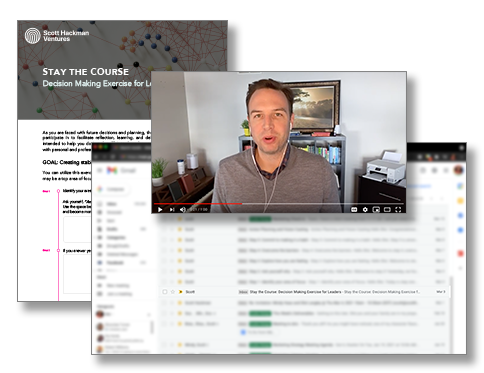Many team leaders understand the importance of having consistent appointments to meet one-on-one with team members. However, it can be difficult to determine what should be addressed during the meeting to ensure the time together is efficient, effective and meaningful for both parties.
What Makes a One-on-One Meeting Effective? Create an Agenda
Ensuring the effectiveness of your one-on-one meeting begins with having a collaborative agenda where both parties actively engage in framing the meeting objectives. This helps guide and give purpose to the meeting. Additionally, it removes the uncertainty and fear of the unknown while helping to establish great rapport, mutual trust, and even loyalty.
Having an agenda also sets the tone of the meeting and opens the door to establishing a safe space for asking and responding to the probing questions that lead to clarity. This sets the stage for long term success. You invest your time in your team members and they in turn become invested in achieving the shared company goals. This accumulative process for establishing a truly collaborative work space is fueled by the effectiveness of those one-on-one meetings.
What Should You Discuss in a One-on-One Meeting?
When determining what you should discuss in a one-on-one meeting, the first rule of thumb is to make sure the meeting is purposeful. For a purposeful meeting to take place, content must be proactively and collaboratively established in advance. As mentioned earlier, working together to create an agenda for your meeting sets the tone for the discussion. Leader and team member then arrive fully invested, primed for an efficient conversation that encourages and promotes growth. Simply, yet adequately, address each agenda bullet, be authentic, self-aware, and truly interested in building a professional relationship.
You must also ask the right questions. This will result in a quality discussion that yields optimal short, and long-term outcomes.
Why Are One-on-One Meeting Questions So Important?
To find the right solutions, you have to ask the right questions. The right questions are the catalyst to effective communication. They help you get to the bottom of things and to avoid making assumptions. Additionally, they can solidify a great professional rapport between leader and team member, which is crucial to productivity and company success. Insight gained from your staff who are the front line of your company is critical to achieving company goals. You can learn a lot from them. Genuinely engaging with them and asking questions that convey concern and receptiveness can solidify trust and enhance your ability to lead effectively.
What Are Good Questions to Ask Employees in a One-on-One Meeting?
There are key reasons to conduct a 1:1 meeting. Once you determine the main purpose for your meeting, you can then determine which questions to ask.
We’ve created a free tool to help you consider the purpose, objectives and questions for your next 1:1 meeting.
Generally, you will want to ask a mix of questions about personal and professional life. You want to get to know your team member and provide a safe space for transparency and honesty:
Personal Questions
- How are you doing?
- How is your family? (spouse, children, parents, etc.,)
- What activities do you enjoy for fun outside of the office?
- How can we help with your work/life balance?
Professional Questions
- What are some of the challenges that the team is currently facing?
- How would you describe current team morale?
- Do you have any suggestions on how I can manage our team most effectively?
- Do you have any ideas on the best way to build cohesiveness within our team?
Career Goals Questions
- What are some of the career goals that you have set for yourself, and how can we help you achieve them?
- Are you interested in professional development opportunities (conferences/training)?
- Where do you see yourself professionally in the next 5 years?
- Is there a part of our business that you would like to learn more about?
Questions to Receive Feedback
- How do you prefer to receive feedback?
- Do you feel like you play an integral role in making team decisions?
- Are our one-on-one meetings effective? Do you have any suggestions on how we can improve them?
- Do you feel informed when it comes to updates from leadership?
Questions about Defining Success
- What do you see as the barriers to your success?
- What are you working on now that you consider a top priority?
- Do you have all of the tools that you need to be successful?
- What are some of your long-term goals for professional growth?
Next Steps
Use these questions to learn from your team members. They will provide you with the best way to empower them to reach their fullest potential. Lead with emotional intelligence and genuine concern. Utilize what you learn to exercise empathy, delegate responsibilities strategically, and manage and motivate your team productively.
Our Leadership Development Program equips current leaders with the tools they need to build future leaders within their organizations. Some of those tools include a more in-depth look at activities like those mentioned above.
Book a complimentary consultation to learn more about how we can help.
——————
Check out other posts in this series:


Scott Hackman is the Founder and CVO of Scott Hackman Ventures. He has over 15 years of experience in business advising, coaching, and leading growth through transitions.
Meet Scott.




